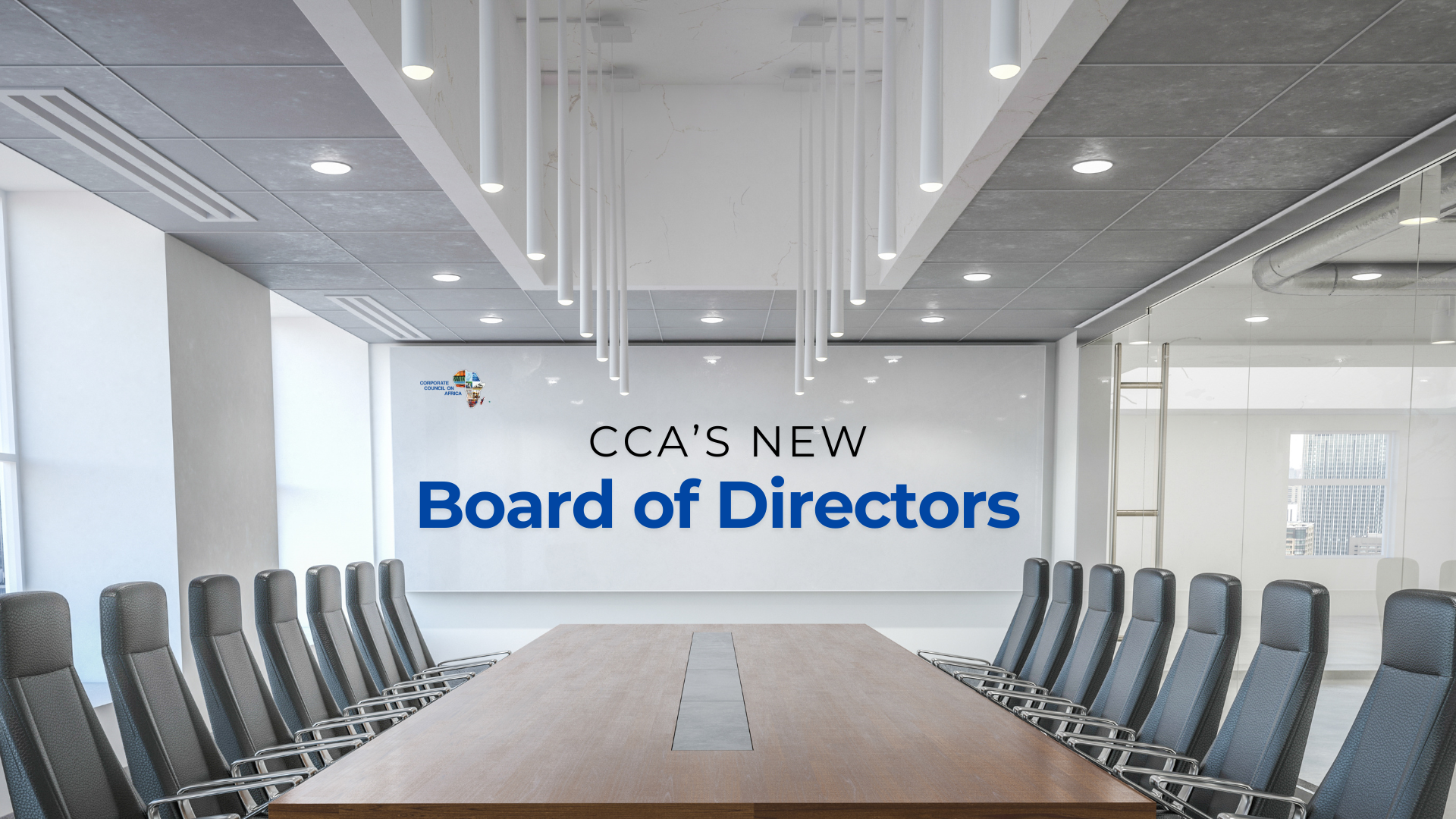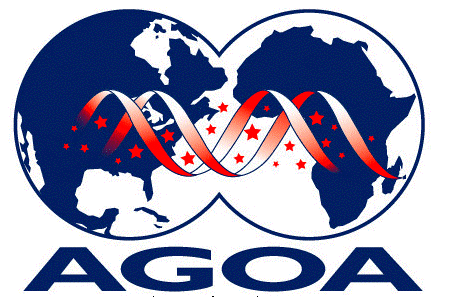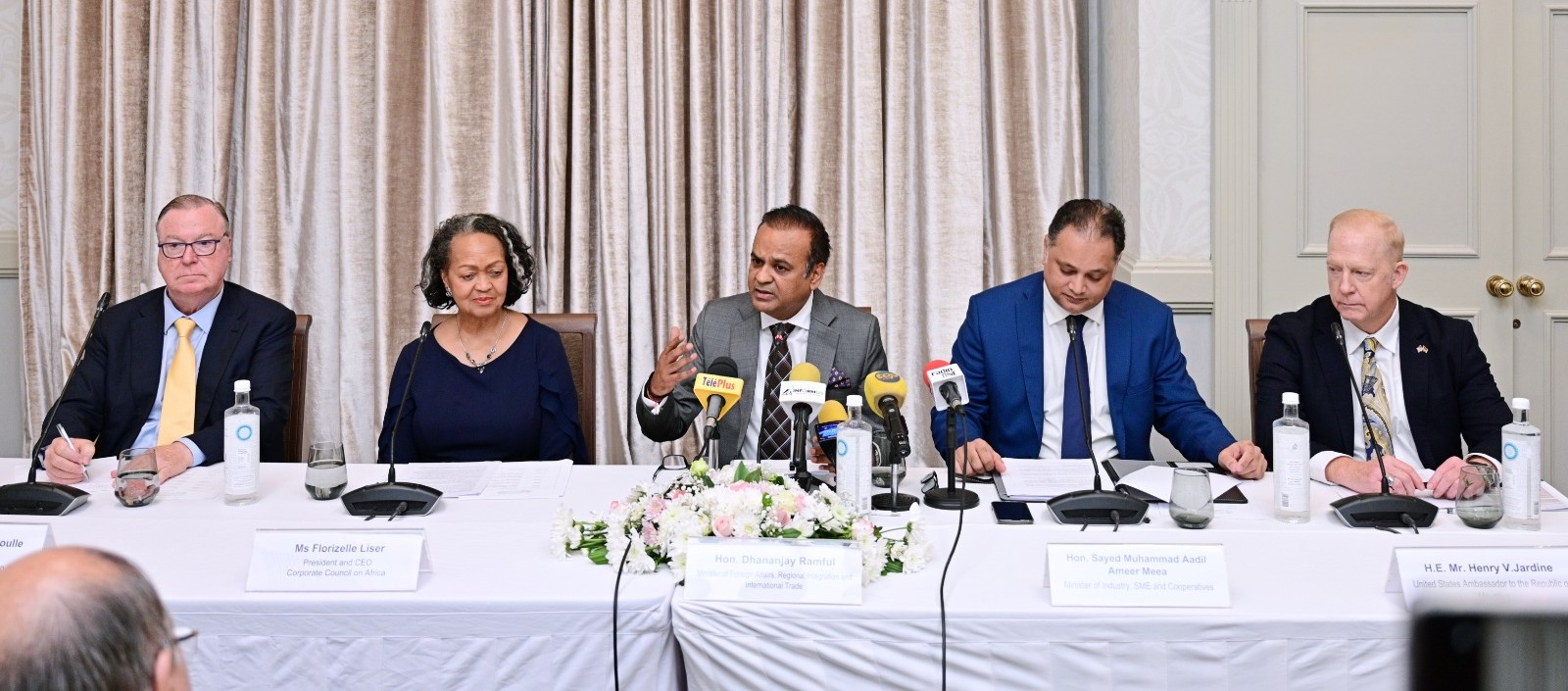Highlights from Day 2 | U.S.-Africa Business Summit
Forging Commercial Partnerships to Achieve More Equitable Vaccine AccessVaccine equity is so important, and there should be more cooperation between the private sector and governments as they work to end the COVID-19 pandemic. With the developed countries having 92 doses per 100 people compared to 4.3 doses per 100 people in Africa, the current vaccine inequity is unacceptable practically, morally, and economically. The delta variant has shown the practical impact of variants among significant populations. For sustained economic recovery, the World Bank, IMF, and WTO linked the K- shaped global economic recovery growth to access to vaccines, showing that "Vaccine policy is economic policy and Vaccine policy is trade policy". According to the IMF, an investment of $50 billion to vaccinate 40% of the world in 2021 will add $9 trillion dollars to the world GDP.An African renaissance in response to COVID-19 has been spearheaded by African heads of state's visionary and practical leadership. Through the Africa Union (AU), Africa CDC (ACDC), WHO, among other key players, the African continent is well-coordinated. Various enabling mechanisms (African Medicines Supply Platform, The African Vaccines Delivery Alliance, The African Vaccine Acquisition Task Team) have been created in response to the pandemic. These collaborations have secured 400Million Johnson &Johnson Covid-19 vaccines to be delivered in a week's time to supplement COVAX through the African initiative. A key lesson from the continent is that you can't rely on others to shape your health security. The African continent and other regions need to step back and look at health security architecture to respond to future pandemics.Lack of global cohesion in managing the pandemic, including the economic losses, resulted in the inequity in Vaccine access. There needs to be a focus on governance and shift beyond vaccine donations. In addition, there needs to be a coherent global vaccine governance structure. "It is in the self-interest of leading economies to back a time-limited finance Arrangement/structure in a lean agile and flexible way to support a global plan to curb the spread of the pandemic." The IMF has created room on special withdrawing rights (STR) worth S650 billion by next month that could support a global plan.The private sector needs a clear global plan of action, including volume purchase orders. With this, it will be upon the private sector to; ramp up production, differentiate prices as per ability to pay / segment markets, and finally assist independent production at different regions while safeguarding their commercial interests. Later, work out how to get the commercial viability of supporting IP transfer to Africa through fees/ etc. but also essential to balance with the humane side. Collaborations models include generic licenses transfer for copiable and maybe for recommended therapeutics for COVID.Other regions need to take lessons from the west on massive vaccinations rates resulting from private sector collaborations. With these reflections, work within the existing market-based systems by deepening commercial partnerships to position the continent for future pandemics noting the role of speedy regulatory approvals and RND contributions to the success.Pfizer's contribution in ensuring Equitable access to vaccines includes a part of a pledge to supply 2 billion vaccine doses (I billion in 2021 and 1 billion in 2022). In Africa, this consists of the announcement at the annual G7 summit in June 2021 by President Biden and Pfizer CEO Albert B on the purchase of 500 M doses of vaccines at non-profit price for the African continent ( 200 M doses in 2021 and 300M doses in 2022). These are to be donated by the USA through COVAX at half price to 92 LMIC, the economies defined by GAVI's COVAX advance market commitment and 55 AU member states. In addition, Pfizer has a direct supply agreement in place with COVAX facility for 40M doses delivery to several African countries and concluded bilateral contracts with South Africa, Rwanda, Tunisia, and several more in the negotiations process.Pfizer recently announced signing a letter of intent with Biovac Insitute in Cape Town, South Africa, to manufacture and distribute Pfizer COVID-19 Vaccine within the Africa Union. The Biovac Insitute will perform manufacturing and distribution activities within Pfizer's global manufacturing and supply chain networks. Technical transfer, onsite development, and equipment installation activities will begin immediately. The Biovac Cape Town facility will be incorporated into the vaccine supply chain by the end of 2021. Biovac will obtain drug substances from facilities in Europe, and manufacturing of finished doses will start in 2022. At full capacity, the facility's annual manufacturing will exceed 1m doses annually. Distribution will be exclusive among the Africa Union countries.While global demand for vaccines continues to outpace supply, other critical public health interventions are still needed to disrupt outbreaks and hotspots now. Testing is still the first defensive line and an effective tool despite the phase of the pandemic in ensuring prevention. It is essential to increase testing while the infection rates are low to enable communities to stay safe. Abbott diagnostics is moving forward with increasing self-test access, including rapid antibody testing.Insights from H.E. Paul Kagame, President, Republic of Rwanda on New Pathways to a Stronger U.S.-Africa Economic PartnershipThe United States is stepping up as an African partner to help meet the vaccine inequity and health infrastructure needs of the continent. In the short-term, the U.S. is donating to COVAX, and long-term, the U.S. is supporting local manufacturing of vaccines and other pharmaceuticals through DFC and other agencies.The global success of Zipline in Rwanda exemplifies the innovations that can be produced through partnerships with Africans. Similar private-sector partnerships should continue in the future.“The COVID-19 pandemic is forcing us to adjust and adapt. We don't know how much longer it will be with us. That's why we need even stronger partnership between Africa and the United States.”“Let's use the urgency of this moment to identify similar opportunities for partnership, between Africa and the United States, focusing especially on the young, men and women on both our continents who see solutions where others only see problems.”Doing Business in BotswanaBotswana is going through its most challenging period due to the effects of COVID-19 and as such, has an appeal for more equity in the distribution of COVID-19 vaccines. In response to this crisis, the Botswana government has launched a project called ‘Save Botswana from COVID-19', a national plan devised to aid with the shortages in affordable and usable vaccines.Botswana is currently embarking in what they are calling the ‘Reset.’ This is a plan geared towards transforming Botswana to a knowledge-based economy. Botswana’s long-term goal is to model its economy based on the values that have enabled countries such as the United States to prosper. With new infrastructure such as the Kazungula Bridge, the aim for Botswana’s government is to turn its country into a hub for global investment. Botswana is also in the process of diversifying its market to become more productive. With improvements in digitization, value chain development and agricultural developments, Botswana promised all of their partners a return on their investment and the potential to tap in markets that are full of potential.Why invest in Botswana?Stability, ability, and partnership. These were the three words Bruce Cleaver, CEO of De Beers, used to describe partnering with Botswana. As one of the African countries with a strong democratic presence, low corruption, free press and an informed citizenry, Botswana offers all its partners very stable and predictable investment opportunities.Closing the Trade Finance Gap: A Pathway to Supporting More SMEs, Diaspora, and Women Owned BusinessesThis session highlighted the trade finance gap with African, Diaspora, SMEs and Women owned businesses and how organizations can contribute to reduce (or eliminate) the gap.Participants discussed the impact of the pandemic on their organizations and initiatives contributing to economic activity recovery, as well as improving business operations. Panelists also highlighted the importance of diversifying both suppliers and clients, in addition to looking beyond the immediate market to new partnerships.The diverse panel emphasized the growing trend of digitalization of SMEs and African business operations. Moving to digital and connected operations will help businesses not only simplify operations but also allow them to reach customers in places they were not able to operate before. This also will positively impact the relationship between Diaspora businesses and businesses on the continent. Panelists concluded that implementing strategies that will enable African SMEs to grow, build capacity, find new U.S. partners, and access cheap and easily available capital will be crucial to close the trade finance gap.Building a Sustainable Agribusiness EcosystemPanelists agreed that diversification was the way to improve the agribusiness sector. Collaboration between U.S. and African companies will help achieve sustainable development through increased access to investment financing and access to global markets for African companies.Achieving diversification will require producing more value-added products, which will be achieved through investment in industrialization, R&D, and technology. Public-Private Partnerships (PPP) and favorable government policies will be key to funding these efforts.Investing in SMEs will be vital to improving agribusiness value chains since SMEs are deeply integrated at every level from retailers to crop transporters. Helping scale up these SME’s will help make the value-chains more productive and improve the sector’s output.Curbing COVID-19 Spread: How A Comprehensive Response Strategy Can Help Disrupt Transmissions TODAYThis Health session focused on the critical role that wide-spread and rapid COVID testing can play now to help countries fight against the pandemic by disrupting current transmissions on the continent.Ambassador Deborah Birx moderated the session and kicked off the conversation noting that rapid COVID testing is a public health intervention in and of itself, and it should not be seen only as a diagnostic tool. Through the years of HIV investment on the continent, amazing work has been done to help make HIV testing more accessible and approachable by emphasizing the importance of knowing your HIV status. These lessons can inform how we increase rapid COVID testing in our communities.Prof. Salim Abdool Karim with CAPRISA noted the need for all public health interventions to be used on the continent, and how rapid, wide-spread testing should be seen as a public health tool to help disrupt COVID transmissions in the community.Dr. David Ripin with the Clinton Health Access Initiative (CHAI) discussed the ways that CHAI is working with countries on their COVID testing strategies, including scaling up wide-spread rapid testing stating that tests results received in 1-2 days limit public health professionals abilities to control the spread of COVID. He further noted that wide-spread rapid testing should be implemented now in order for countries to achieve their societal goals, including reopening of the economy and the ability to gather again.Marijke Wijnroks with the Global Fund stated that they see rapid antigen tests as a key tool for countries to use in their fight against COVID-19 and they have released guidance encouraging countries to scale up rapid antigen tests, especially in non-clinical settings in order to find and isolate asymptomatic community spread of COVID.Zaandre Hitzeroth with Medicare 24 discussed how they use wide-spread rapid testing to regularly screen their employees in their 18 occupational and primary health centers across South Africa to keep them and their client's safe. He also discussed how their clinics provide employee wide-spread rapid testing for several industry sectors in South Africa as well, as rapid testing provides the timely results needed to know if employees are infectious and need to isolate to keep their colleagues and communities safe.Tourism: A Path to Post-COVID Economic RelaunchTourism: A Path to Post-COVID Economic Relaunch session highlighted how the vital tourism sector is in many African countries. Government, private sector and development finance leaders have provided recommendations to create post-COVID demand for African travel and tours. In addition, mass COVID vaccination rollouts and a review of COVID mandatory travel restrictions are considered a priority area for review.The Tourism session highlighted the importance of this sector in global economic recovery and emphasized that it should be treated as the economic driver that it has historically proven to be. Tourism was the most affected by the pandemic , with jobs in tourism decreasing by 30% in some countries. However, Mossadeck Bally, CEO of Azalai Hotels, noted that “in any crisis, there is an opportunity to reinvent,” and that has been demonstrated through companies looking at more creative solutions within the tourism industry. The IFC, for example, has invested $1 billion into hotel projects and provided $8 billion in financing to help private companies affected by COVID and United Airlines has increased air travel between the United States and Africa during the pandemic.A key dialogue centered around the role that government can play in promoting the tourism sector. Panelists looked at H.E. Nadia Fettah Alaoui’s role in Morocco’s success in building a market around tourism. She noted that to bolster tourism, there needs to be a government presence but also a collaborative effort between the private and public sectors. Additionally, the tourism sector needs long-term planning and funding to see the results that some countries have achieved. Olaf Schmidt, Regional Manager for Sub-Saharan Africa at the IFC, noted Rwanda’s success in marketing itself as a destination spot. The deliberate government effort towards tourism grew the market from $20M to $400M in 20 years.Another focus of discussion was on air connectivity and the either limiting or facilitating role it plays in tourism. The panel discussion also focused on the U.S. diaspora community as the largest group currently traveling to Africa, considering the significant precautions imposed due to the pandemic. Chaitan Jain, Director of Regulatory Affairs at United Airlines, warned against using “blunt instruments” to combat COVID. Ghana, for example, has seen an increase in air travel because they don’t impose the same quarantine standards as other countries have. Air travel was also noted as a luxury, and Jain talked of the need to see it not as a “cash grab,” but as something that can be supported and developed. Ultimately, if flights are too expensive to the African continent, that will severely limit people’s ability to travel and, thus, hinder the whole market. Greater air connectivity will also bring more economic opportunity to the hospitality sector of the continent.Intra-Africa travel was another focal point of the tourism session. Panelists looked at Europe’s better economic resiliency during the pandemic for the tourism sector because of the more significant regional travel between countries. Azalai Hotels CEO Bally advised removing visas as a barrier to this opportunity for travel, and Moroccan Minister of Tourism Alaoui noted the need to localize these industries. IFC Sub-Saharan Africa Regional Manager Schmidt pointed out that this could broaden the sector as a whole and stop dependency on just a few aspects of the industry and, for that reason, sees it as a significant prospect.Ultimately, the tourism sector is a gold mine of economic opportunity, but it needs attention and time to develop. It also represents a future for young entrepreneurs and SMEs. Through tourism, we can create jobs and educational opportunities. All speakers noted the importance of safety measures amidst the pandemic, but that tourism shouldn't be halted.As an economic engine, the industry needs clear ambition, dedicated strategy, and resources for the African tourism sector to recover.Trained Immunity: Consequences For Public Health And Disease (Sponsored by Boulle Group)Professor Mihai Netea is an infectious diseases specialist and a clinical scientist who has discovered new insights into how the body’s defense system adapts to changing external threats.The body uses two mechanisms to fight disease:The innate immune system, which is the body’s first line of defense and deals with most bacterial or viral infections through nonspecific reactions.The adaptive immune system is activated if the innate immune system cannot deal with an infection and provides a specific response and builds memory.Based on epidemiological research on BCG vaccination programs, including in Guinea Bissau and DRC, Mihai discovered that our innate immune system also harbors an immune memory, which the field now refers to as 'trained immunity.'Using new techniques, trained immunity can be used to change the way the innate immune system works so it can provide temporary, yet durable, increased protection against disease. Studies have shown the effectiveness of trained immunity against COVID, for example.Furthermore, as trained immunity regulates the innate immune system the technique can potentially be used to address diseases associated with both a low immune response, such as cancer, or those where the immune system is overactive, for example atherosclerosis.Latest research in Tanzania shows that the process of urbanization and the move from traditional diets to a more “western” style of living can result in the innate immune system becoming overactive through trained immunity, and these processes can lead to metabolic and inflammatory diseases which can be treated by targeting trained immunity.



